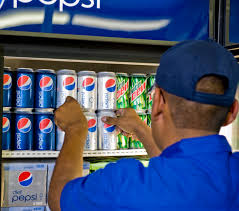In an action surely designed to move forward and maintain business focus, Mondelez International (MDLZ 0.33%) announced last week the addition of activist shareholder Nelson Peltz to its board of directors. Peltz, CEO of Trian Fund Management, recently advocated for a merger of Mondelez and PepsiCo (PEP 0.90%), another of Trian's major holdings. Peltz envisioned a "global snacks powerhouse" in which the combination of Mondelez and Pepsi's food businesses would dominate the international snack landscape (after a spinoff of the beverages business).
The proposed transaction met with resistance from both Pepsi and Mondelez, and it has been shelved for the time being. What objectives will Peltz now push at Mondelez in his new capacity as board member?
Perhaps the 59-page white paper that Trian Fund Management issued last July, when it floated the idea of a merger, holds some clues.
Scenario one: Take on additional debt
In the document, which you can read here in its entirety, Trian Partners argued for leveraging the combined company's balance sheet in order to refinance debt, help fund the merger, and return some cash to shareholders via share repurchases.
Trian pointed out that the powerful cash flow of food and beverage companies supports higher debt levels when industry leaders merge. As an example, the fund pointed to Brazilian/Dutch beverage giant InBev's acquisition of Anheuser-Busch, in which the capital structure of the merged entity sported a debt level of five times earnings before interest, taxes, depreciation, and amortization, or EBITDA.
Thus, it's entirely possible that while the Mondelez-Pepsi merger has not panned out, low interest rates and Mondelez's vigorous cash flow will spur Peltz to advocate for more leverage on Mondelez's balance sheet, with freed-up cash destined for shareholders' pockets. However, this is not the most likely scenario, as Mondelez's debt is already 5.1 times EBITDA, based on its last reported balance sheet and trailing-12-month earnings.
Scenario two: Claiming the spoils of margin improvement
In one of the most persuasive sections of its white paper, Trian compared Mondelez's earnings before interest and taxes, or EBIT margin, to that of 13 other diversified food businesses. Industry stalwarts Wrigley, Hershey, and the snacks portion of Pepsi's business each enjoyed EBIT margins of 18% or higher. Mondelez claimed the lowest EBIT margin of all companies compared, at 12.2%. Peltz predicted that a 400-basis-point improvement in Mondelez's margins could be worth $1.4 billion of EBITDA annually to the company. Not too long after the Trian white paper was issued, Mondelez outlined its own plan to improve margins by 300 basis points, potentially reaping $1 billion of annual savings.
Now that Peltz is on the board, he will undoubtedly be a forceful voice for supply chain improvements and other productivity initiatives. But when margin improvements generate additional cash flow, which course will he promote? Ideally, Mondelez would use the cash to continue reducing its debt. Notwithstanding its flexible attitude toward leverage, Trian's hypothetical combination of Pepsi's Frito-Lay food business with Mondelez actually called for an eventual lowering of the debt-to-EBITDA ratio, from a post-transaction high of 4.5 times, to roughly 2.8 times after three years, so the idea of debt reduction certainly isn't foreign to Peltz.
Yet the market doesn't always translate prudent debt management into valuation. If Mondelez's stock stands still, Peltz may be tempted to lobby for the extra cash flow to be distributed via dividends or share repurchases.
Potential conflict ahead
Such pressure likely won't sit well with Mondelez's management team. In what was widely perceived as appeasement to Peltz and Trian Partners, last summer Mondelez quintupled its initial share buyback authorization through 2016 for Class A common shares, from $1.2 billion to $6 billion (not including a $1.7 billion pass-through to shareholders from an arbitration agreement with Starbucks).
This type of cash allocation doesn't quite fit the model Mondelez envisioned when it spun off its North American grocery business (which is now Kraft Foods) in late 2012 to be a stand-alone snack business propelled by a stable of global power brands. A major premise behind the concept of Mondelez, which almost became a mantra in its first year as a reformulated company, was the sustainability of 5% to 7% organic revenue growth on an annual basis.
To regain this growth level, the company will need to earmark cash for increased marketing for its most powerful brands in its most promising emerging markets. Mondelez will also need to allocate cash to innovations in packaging, localization of products (as it did in China with its "Golden" Oreo cookies), research and development of new products, and continued development of new manufacturing plants in high-growth areas. State-of-the-art production facilities, of which Mondelez plans to build 14 in the next six years, aren't constructed for a song: The company's new chocolate plant in Andhra Pradesh, India, for example, will cost nearly $200 million.
Shareholders should be concerned about the potential for Mondelez to get stuck in a low-growth pattern due to the amounts of cash that may be returned to shareholders in coming years, in lieu of being reinvested in the business. Of course, Peltz has a long track record as an astute businessman, and he could provide wise counsel to the company as to how to extend its power brands on a global scale. The question is whether Peltz's patience -- and Trian's time frame to realize returns -- will line up with the years it might take for Mondelez's management to fully realize its own vision.







